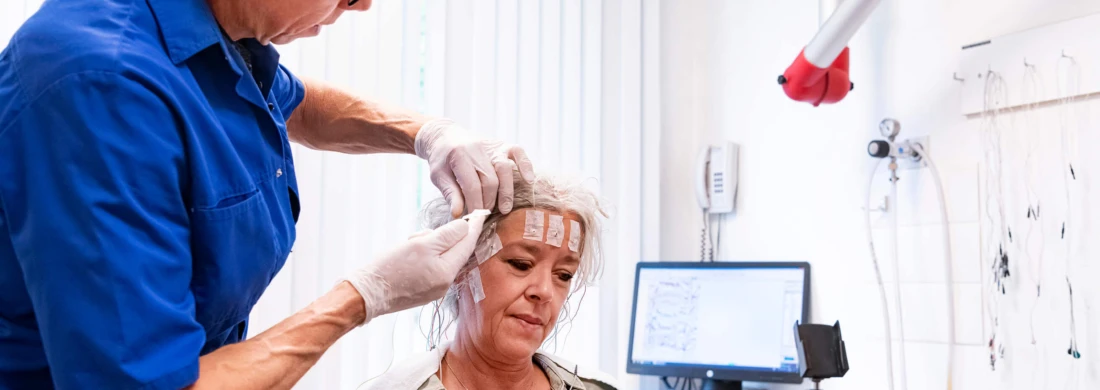Epilepsy surgery, a brain operation, aims to make people with epilepsy seizure-free. Patients are eligible for this surgery if they continue to have seizures despite medication, and these seizures significantly impact their lives. The conditions are that the seizures clearly originate from a specific part of the brain, and that this area - the epileptic focus - can be safely removed or disabled without causing major damage, such as paralysis, speech loss, or memory impairment.
Epilepsy Surgery: Brain surgery to become seizure-free

Preoperative Examinations
The possible effect of the surgery must outweigh the risks. If your neurologist believes that brain surgery could be a treatment option for you or your child, you will go through an extensive and careful process. This includes multiple preoperative examinations over a longer period, such as (multi-day) seizure monitoring, MRI scans, and neuropsychological assessments.
Most preparatory tests and seizure monitoring are conducted at our expertise center. You or your child may need to go to Maastricht UMC+ or Amsterdam UMC for certain tests. The brain surgery is also performed at Maastricht UMC+.
Evaluating after each step
The process surrounding brain surgery can be intensive and lengthy. At each step of the process, a special Epilepsy Surgery Working Group determines whether there is a sufficient chance of success to proceed. This working group consists of medical specialists from epilepsy centers and academic hospitals. Together with your neurologist and a nurse specialist, you will discuss the outcome of the Epilepsy Surgery Working Group after each phase. After the brain surgery at the academic hospital, you or your child will return to Kempenhaeghe for the post-operative care process.
Watch the videos here
Are you and your doctors considering brain surgery with the goal of becoming seizure-free? In a series of videos from the Academic Center for Epileptology, a collaboration between Kempenhaeghe and MUMC+, you can see how the entire process unfolds. You will also meet several patients who share what this journey has meant for them.
Phase 0: Preparation for epilepsy surgery
Phase 1: Preliminary examinations at Kempenhaeghe
Phase 2: Follow-up research on epilepsy surgery
Phase 3A: Follow-up research with GRID monitoring